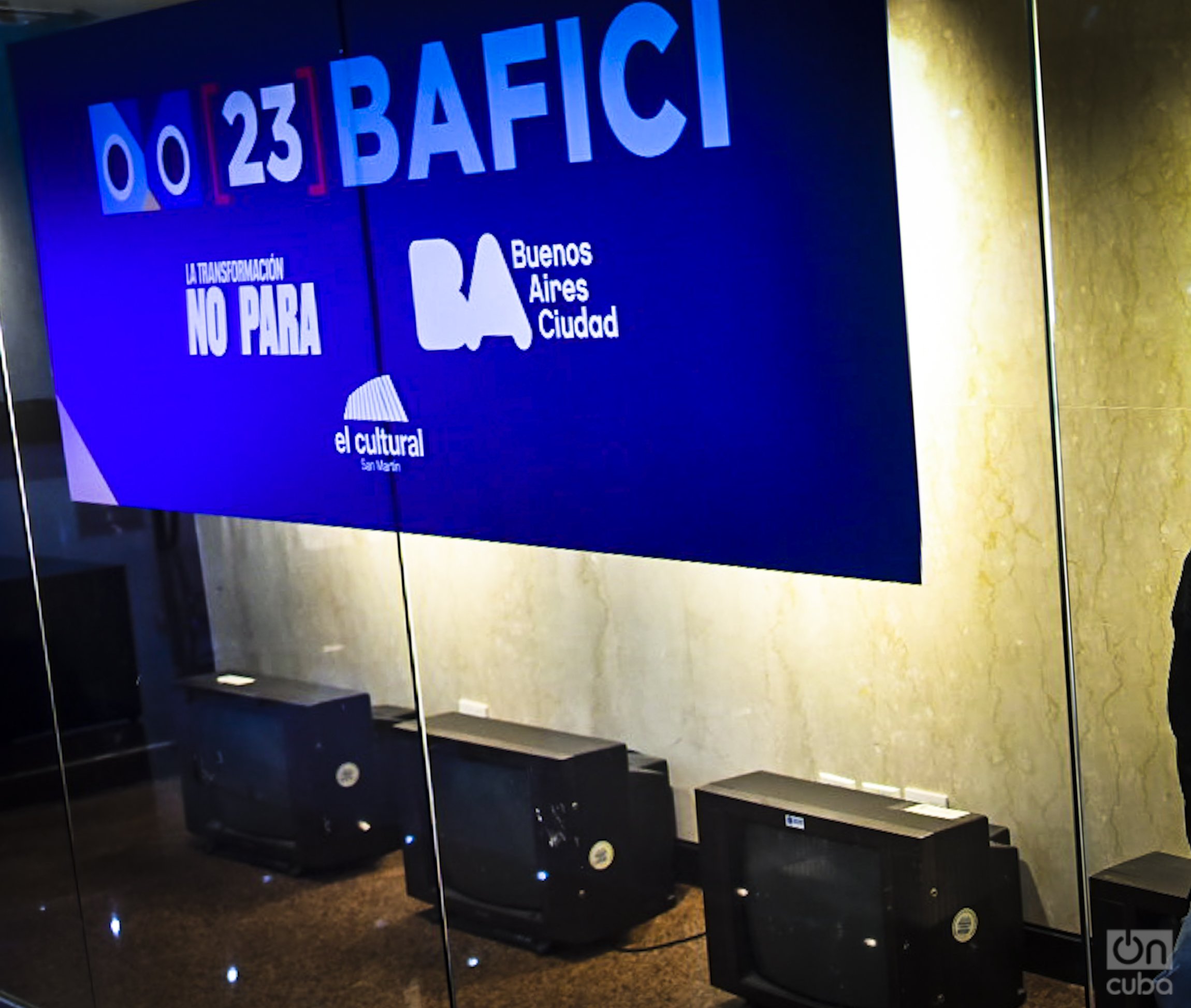Again at the entrance door of room one of the San Martín cultural center. now to see Tundra, the short film by Cuban José Luis Aparicio. One of the organizers of the Buenos Aires Independent Film Festival (Bafici) approaches to ask if I am one of the directors. I tell him no, that I’m a journalist, and that I’m waiting to see if there’s capacity because I didn’t have enough tickets.
The man steps aside and I begin to walk through the wide space dominated by escalators. Few people get off. No one goes up. The mat is unstoppable. I see some TVs arranged on the floor. After a while they ask those who are in line to pass, or simply standing in a discreet group. One of the organizers tells me that I can join. I walk through the door and see a fairly full room.
It’s Sunday, six forty-five in the afternoon. Five materials are projected. Tundra first. follow him Goingby Ignacio Ragone; The visitby Carmela Sandberg; Leewardby Marco Salaverria, and Macadam by Ignacio Sarchi. A brief presentation, applause, everyone attentive. I pull out my planner to jot down what I can in the dark.
With the door closed, just as the announcements began on the screen (“The transformation of the city does not stop”, voice of the governor of the city of Buenos Aires, the only parliament that would eventually cause laughter that night), one enters who looks like the director of the short I see it against the light. I swear, I swear because I’m alone, that it was Aparicio and I spy on the couch.
I take my phone, I look up his Facebook. Tundra over here and Tundra over there. Bafici. I don’t know him personally, but I am more or less informed of his work, of the success and repercussion of works such as the documentary hovering dreams, where he addresses the life of the troubadour Mike Porcel. That material was premiered precisely at Bafici. For another vi festival here in Buenos Aires The dryer, film of which, if I remember correctly, there are some elements in this one now.
The other Aparicio went up the steps using the corridor closest to the door, opposite where I was. I assumed that there was so much desire to participate in him that he, somehow, had achieved it and finally there he was. He was accompanied by a girl. Since he wasn’t going to put me on the spot, I forgot about it.
The short was already beginning with a script by my dear Carlos Melián, art design by Pepe Reyes, photography by Gabriel Alemán, editing by Joanna Montero and a sound worked by Glenda Martínez.
A man (Mario Guerra) wakes up in the morning and instead of being a large insect, as in Kafka, he sees that a huge monster similar to Hokusai’s octopod is still dozing in his living room; it is much more disgusting. The city is infected by that kind of immoral bugs and parasites. Also by posters that warn of some kind of epidemic. I understand that I am facing another Cuban story arising from the dystopian and apocalyptic country that inhabits so many people.
The man who has woken up is an electrical inspector obsessed with a Red Woman played by Neisy Alpízar. He dreams of her and doesn’t let go of her image, not even before the hammering of the countless machines that fill bureaucratic files. In order to reach her dream woman, to reach her or something that resembles her, he admits bribing the hand of a girl (Laura Molina) who had been chasing him to convince him to withdraw a fine imposed on his family for stealing. electricity.
I’m not saying this because I’m Cuban: after having seen the five shorts scheduled that night, I realize that if, among all the stories, the protagonist of Tundra is the one who lives in the greatest precariousness, he is, however, of all of them, the one who overcomes his circumstance with the greatest ingenuity, by dint of imagination. That is to say, thanks to the narrative resources of the story, Laduet, the persevering inspector, survives. He is moved by the desire of a woman who has been corrupted by the monstrous animal that advances on everything, slow as discouragement.
In the long run, the five materials revolve around similar themes: the weight of existence, the dream squeezed by routine, the circumstance of living falling like a stone in people’s paths; therein lies the core of each of the arguments dealt with by these five young filmmakers.
Magnificent atmosphere in the short of Aparicio. Master effects. An effective music and those present applaud at the end of his work, they applaud at each of the endings of the remaining five films. Cuban history in particular seems somewhat imprecise to me, as if it were too big a metaphor for such a short story.
Cinema: second screening of “Corazón Azul”, by Miguel Coyula, at Bafici
They turned on the lights and I try to focus well. The supposed Aparicio was confused in a molote and escaped without giving me time if he wants to shout at him. He was one of the many who came out when the credits of the last material were still rolling, leaving the filmmakers who had actually appeared almost with the word in their mouths.
After a while I went up the stairs. This had been the second screening of the short film by José Luis Aparicio (Santa Clara, 1994) at Bafici. The third and last will take place on Wednesday night. On the way I thought about that thing, that rude and impressive beast. The world is full of such creatures. If organisms like Tardigrades could grow to the size of a cow, many of us would be scared. In the same way, if certain feelings were visible, if they got in our way like jíbaro dogs, we would not be able to calm down in the midst of so much fright.






